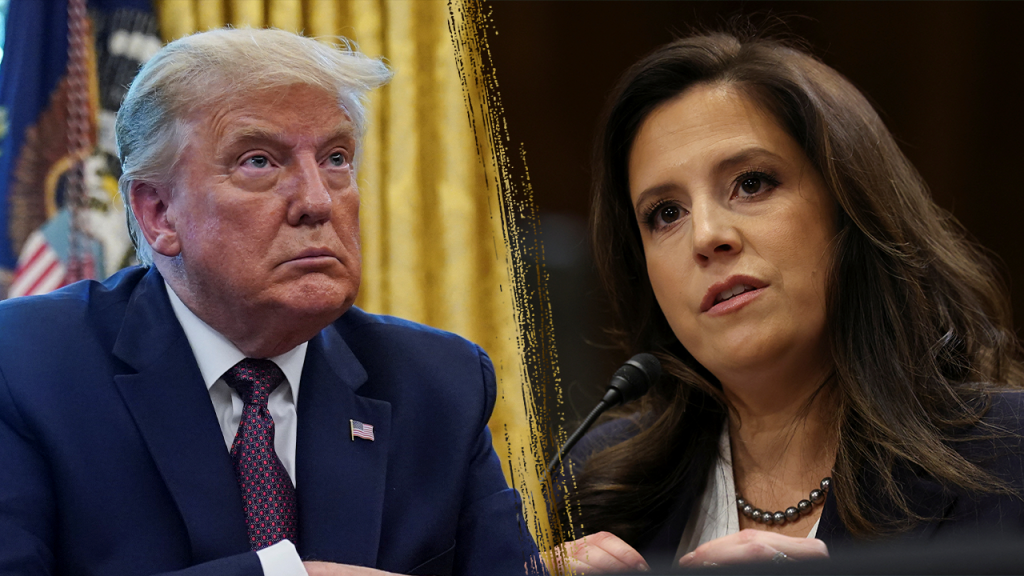In a significant political move, President Donald Trump announced the withdrawal of Representative Elise Stefanik’s nomination for the position of United Nations ambassador. Concerns regarding the stability of the Republican majority in the House of Representatives influenced this decision, with Trump emphasizing the importance of preserving a slim majority amidst upcoming congressional elections in Florida. This decision comes as the GOP prepares to navigate two critical special elections that could shape the party’s control in the House.
| Article Subheadings |
|---|
| 1) The Decision to Withdraw the Nomination |
| 2) Upcoming Special Elections in Florida |
| 3) Republican Majority at Stake |
| 4) Challenges Faced by GOP Candidates |
| 5) The Future of Elise Stefanik in Politics |
The Decision to Withdraw the Nomination
The withdrawal of Elise Stefanik‘s nomination as U.N. ambassador marks a critical point in the ongoing strategies of the Republican Party, particularly under President Donald Trump. Speaking from the White House, President Trump highlighted his motivation for this decision stemmed from a desire to ensure stability and avoid any uncertainties that may affect the slim Republican majority in the House. “We cannot take a chance,” Trump stated, reinforcing his preference for retaining loyal party members in Congress. The decision was communicated to Stefanik during a personal discussion, as Trump emphasized his reliance on her continued presence in the House to push forward their legislative agenda.
Upcoming Special Elections in Florida
The backdrop of this political maneuvering is two pivotal special elections scheduled in Florida’s 1st and 6th Congressional Districts. The elections, set for Tuesday, are crucial for the Republican Party, which seeks to maintain its influence in these traditionally red districts. In particular, both districts were carried by Trump during the last presidential election, winning by significant margins—37 points in the 1st District and 30 points in the 6th District. However, these special elections arrive amid apprehensions as Democratic candidates have significantly outpaced their Republican counterparts in fundraising efforts, potentially jeopardizing the GOP’s stronghold in Florida.
Republican Majority at Stake
As it stands, the Republican Party holds a precarious majority in the House of Representatives, with a total of 218 members against 213 Democrats. This thin margin underscores the urgency of the upcoming elections, as any losses could tempt further shifts in party dynamics. The available seats represent a delicate balancing act for Republicans, particularly following the recent vacancies caused by resignations and untimely deaths among Democrats. With Trump’s acknowledgment of the potential risks involved, the stakes have never been higher as the party looks to consolidate its power before the upcoming congressional elections.
Challenges Faced by GOP Candidates
The Republican candidates in the Florida special elections face significant challenges, particularly given the impressive fundraising capabilities of their Democratic opponents. For instance, in the 6th District, where Randy Fine, the GOP candidate, is contending against Democratic candidate Josh Weil, the fundraising gap could play a critical role in determining the election outcome. With Democrats having demonstrated clever mobilization of donations and grassroots support, many within the GOP express concerns about how this might impact election results. Trump’s recognition of these fundraising discrepancies further complicates the situation for Republicans seeking to maintain control of the House?
The Future of Elise Stefanik in Politics
Although Stefanik’s nomination for the U.N. role has been rescinded, her political future remains strong. Having successfully retained her seat in Congress with a substantial margin during the last election, she is still regarded as a formidable politician within the GOP. Trump’s assurances that she would remain in a high leadership position within the House Republican Conference suggest confidence in her ability to influence party direction moving forward. As the Republicans navigate the challenges ahead, Stefanik’s strategic importance in maintaining party unity becomes increasingly relevant, particularly in light of the forthcoming midterm elections.
| No. | Key Points |
|---|---|
| 1 | President Trump withdrew Elise Stefanik’s nomination for U.N. ambassador to ensure party unity. |
| 2 | Florida’s upcoming special elections are crucial for the GOP to retain its House majority. |
| 3 | Democratic candidates in Florida have significantly outmatched Republicans in fundraising efforts. |
| 4 | The GOP majority in the House stands at a narrow 218-213, with ongoing concerns regarding upcoming elections. |
| 5 | Stefanik’s future in the GOP appears secure, with plans for a high leadership role within the House. |
Summary
President Trump’s decision to withdraw the nomination of Elise Stefanik as United Nations ambassador underscores the ongoing efforts to solidify Republican control in Congress amid uncertainties arising from imminent special elections. With the GOP facing intense fundraising competition from Democrats in two crucial Florida districts, maintaining a solid vote base and ensuring party loyalty will be central to the Republicans’ strategy as they navigate this politically charged environment. Stefanik’s sustained presence in Congress is likely to aid this effort, positioning the GOP for a challenging yet essential battle in the near future.
Frequently Asked Questions
Question: Why did President Trump withdraw Elise Stefanik’s nomination?
President Trump withdrew Elise Stefanik’s nomination to ensure the Republican Party’s stability in Congress, particularly as he believes her presence is crucial for advancing the party’s interests during a vulnerable time.
Question: What elections are taking place in Florida that could impact the GOP?
Two special elections in Florida’s 1st and 6th Congressional Districts are taking place soon, which could significantly affect the Republican majority in the House of Representatives.
Question: How is fundraising impacting the upcoming elections?
Democratic candidates in Florida have vastly outpaced their Republican opponents in fundraising, which raises concerns about the competitiveness of the races and the ability of GOP candidates to mobilize support.


